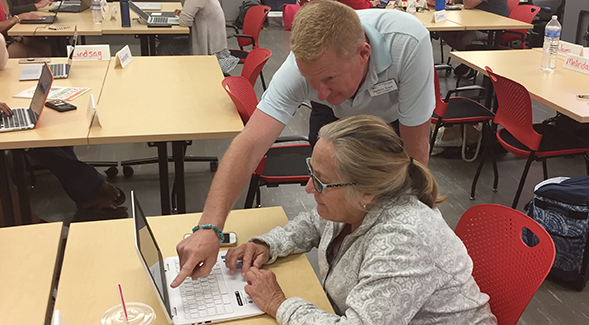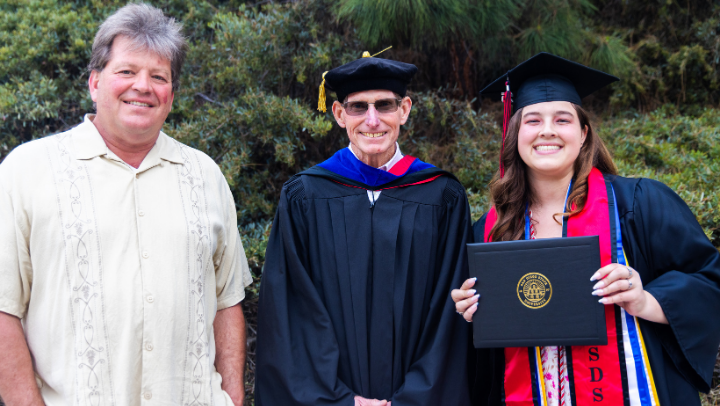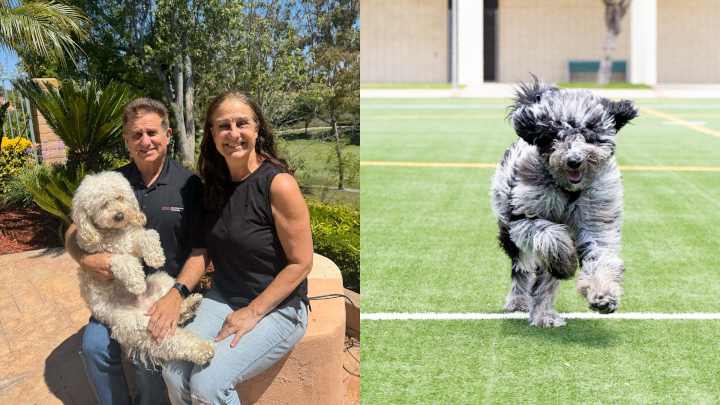A Crash Course in Coding
An alumni-supported workshop gave local teachers a chance to brush up on skills they then pass along to the STEM generation.

Val Donaldson (’84) was all smiles as she proudly showed off her newest creation — an aquatic themed-interactive card. On her laptop, the fifth-grade teacher in the Cajon Valley School District entered commands that sent her shark sprite moving and turning and flipping against an aqua-colored background.
“It's basic stuff,” Donaldson said of the two-dimensional animation on her screen. “But that's what gives you the confidence to say, 'OK, at least I can teach my kids basic stuff.' Because obviously they're going to take the ball and run with it. They're so much more adept than we are."
Donaldson was one of 21 San Diego-area primary and secondary school teachers who visited San Diego State University this month for a weeklong Coding for Teachers workshop.
“I am in awe of teachers who are willing to dedicate a week out of their precious summer to come and do this and to really be brave — a lot of them have no coding background at all,” said workshop organizer and instructor Donna Ross, associate professor in the School of Teacher Education. “Coming into this workshop can be a little intimidating, but they have been dedicated, hardworking and motivated and just a remarkable bunch of teachers.”
The importance of teaching coding — the computer language used to develop websites and applications — is not only about technical training; Ross said it’s a proven way to hone young people’s critical thinking, problem-solving and perseverance skills.
Alumni support
The free workshop was inspired and funded by Michael Pack (’70), a board member of The Campanile Foundation, who reached out to SDSU after seeing a “60 Minutes” segment about a nonprofit that provides coding lessons to girls as a way to address the tech gender gap. Pack wanted to help and decided the best way he could help bring coding skills to the next generation was through their teachers.
“You've got one teacher teaching 30 kids — that's huge leverage.” Pack said. “I know that if they are empowered and if they're that excited about it, their excitement is going to permeate to the students and they're going to be excited about it. To me, that's how good teachers become great teachers.”
Pack was connected with Ross, who fleshed out the idea. Throughout the week, teachers were educated on the basics of coding languages like Scratch and Python while taking part in interactive programming projects involving tiny Evo and Sphero robots, model volcanoes — and dancing sharks.
Building confidence
The coding experience level of the attendees ran the gamut; some were looking to brush up while others were starting from square one. Donaldson knew a little. She’d incorporated coding into the curriculum while teaching at a previous school, but said her current school is in a less affluent community where fewer students have been exposed to it.
By the third day of the workshop, she said she was already devising a new lesson plan to get them started.
“I feel so much more confident,” Donaldson said. “I'm able to take my experience from the past, but now I really understand what I'm doing.”



